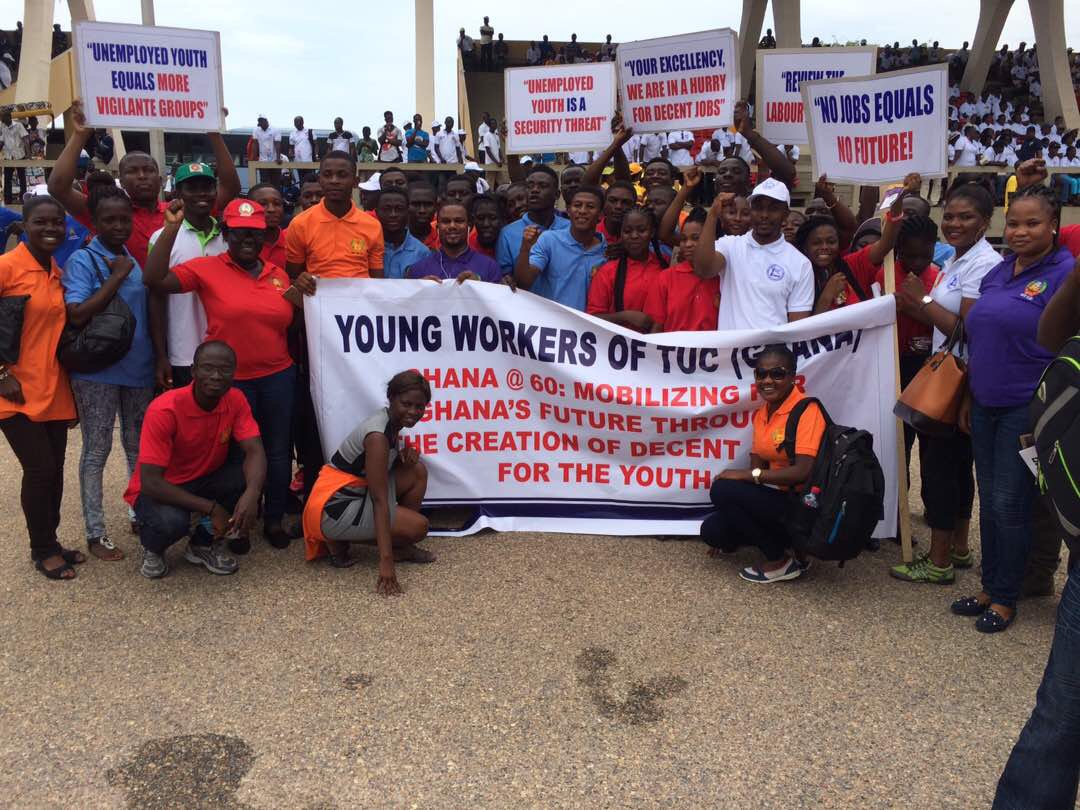
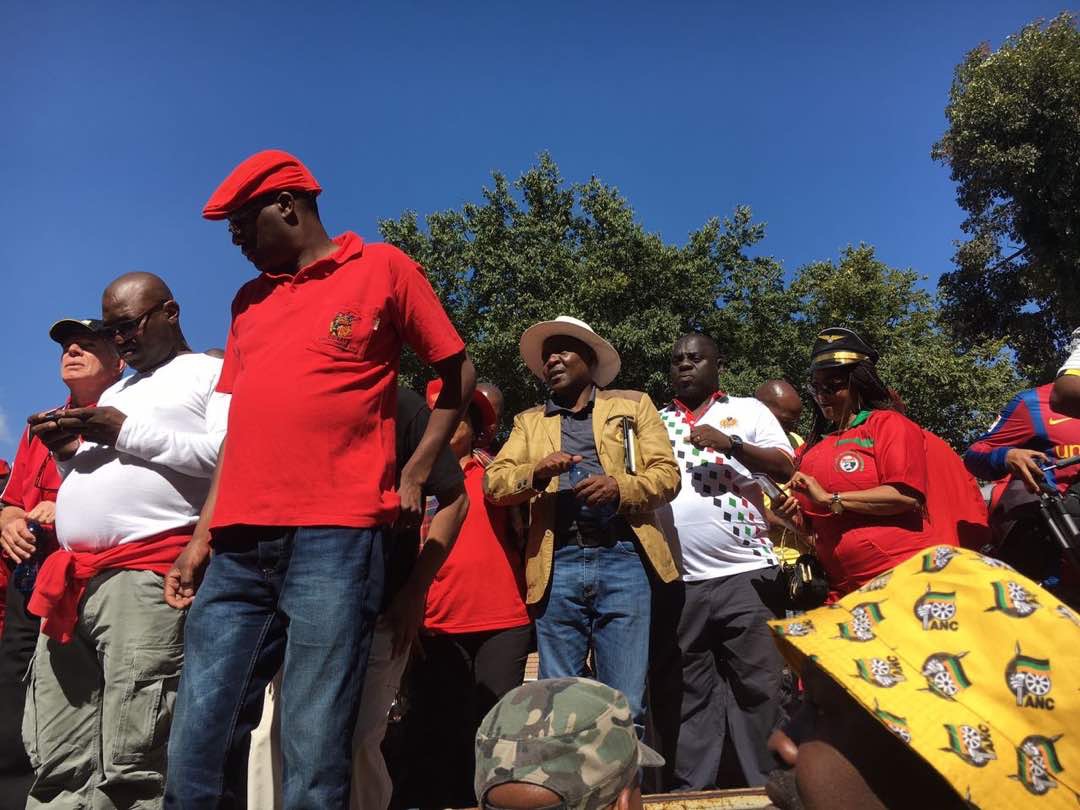
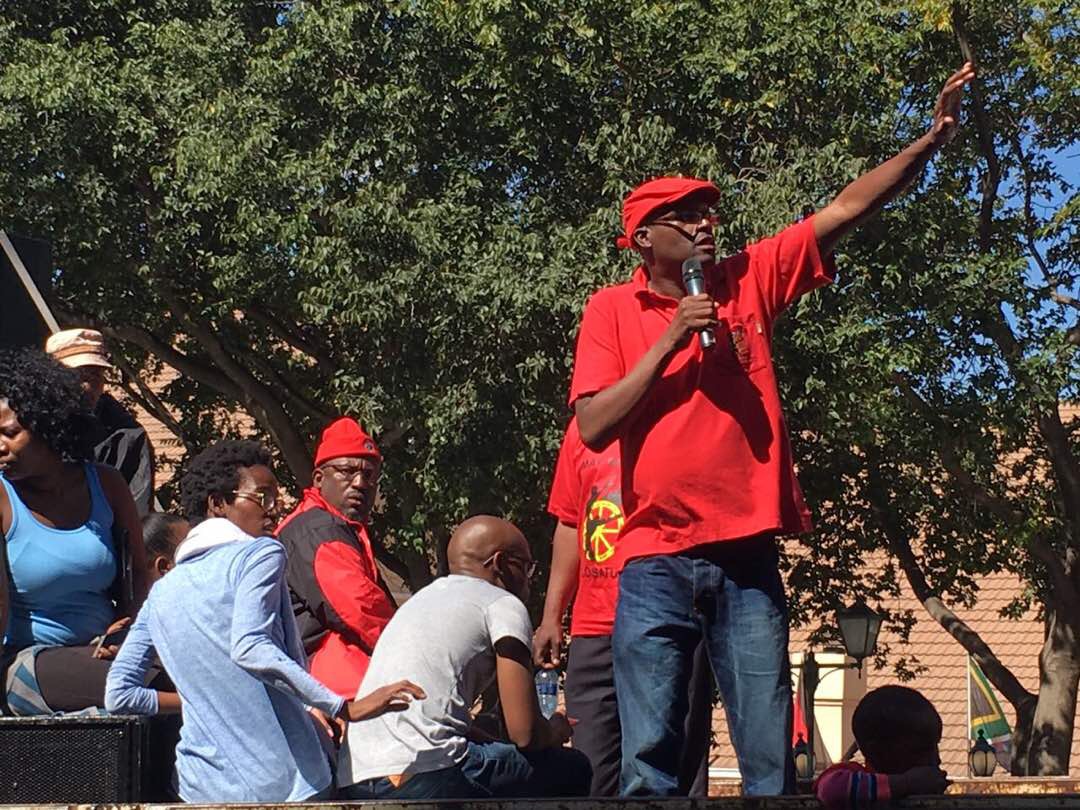
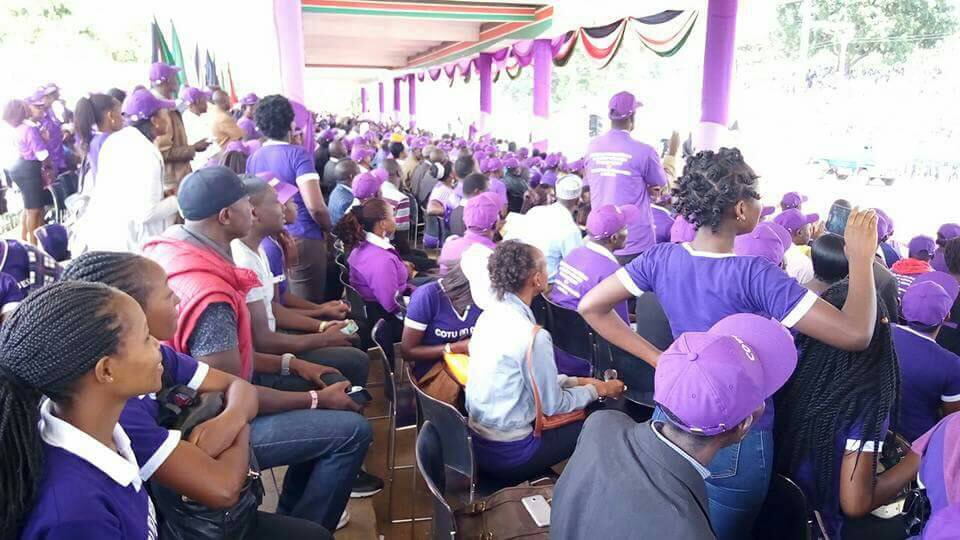
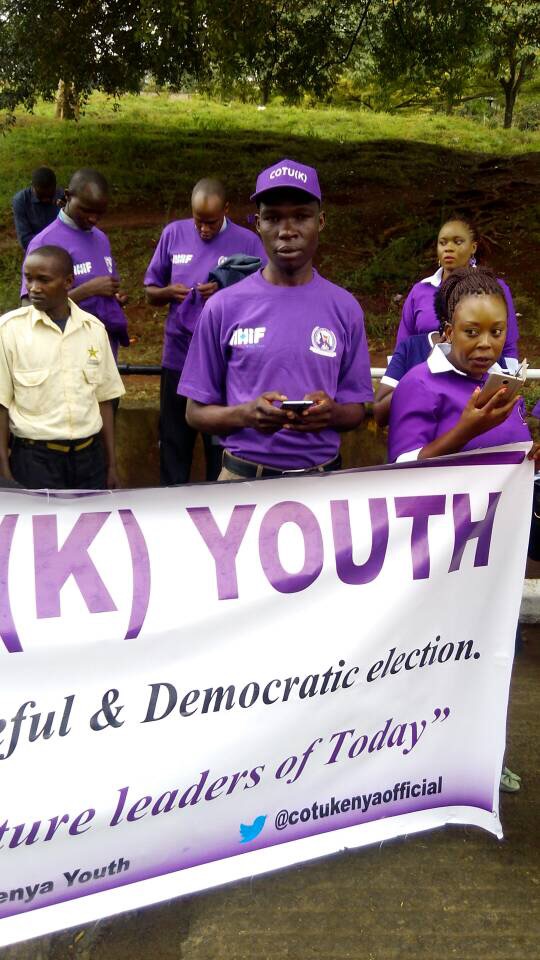
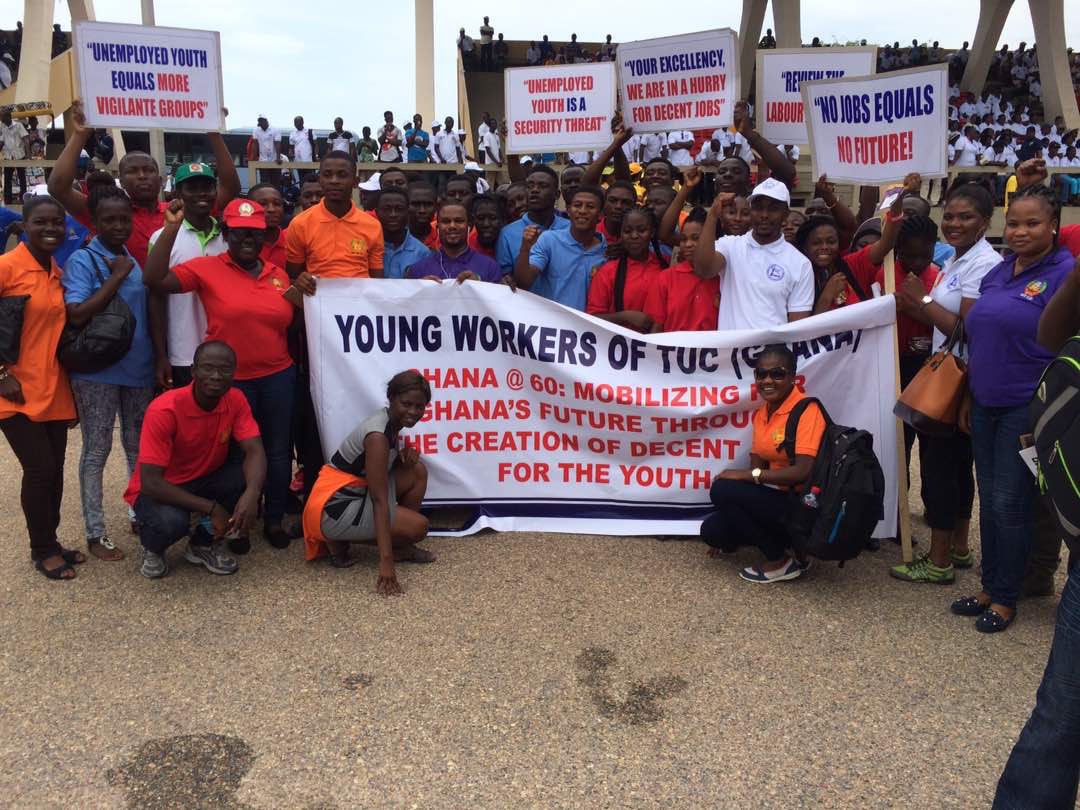

The Labor Day is an opportunity for the workers to dedicate themselves once more to the workers’ struggle and to our people; It also offers workers the opportunity to renew their solidarity with those engaged in the struggle against injustice, inequality, poverty and situations that may have an impact on the lives as workers and that of their families.
Labor Day was celebrated all over the continent but not in the same atmosphere everywhere. Let us have a quick tour of this commemoration in some national organizations affiliated to ITUC-Africa.
In the particular case of South Africa, the labour day commemoration brought to light the deep divisions that are undermining the tripartite alliance of the ANC, the Communist Party and the COSATU. The rally organized by the trade union confederation COSATU in the Free State Province quickly degenerated as four member unions had previously declared that they did not want President Jacob Zuma to speak in the rostrum. All the speeches were canceled and the head of state left under the boos of the workers.
In Gabon, an official procession of several thousand of people, who marched in front of the Prime Minister, took place on the Boulevard Triomphal Omar Bongo. A second group of trade unionists who demanded the rehabilitation of CONASYSED (the main trade union center of the Education sector, which was banned since 18 March) tried to organize a march that was soon dispersed by the police.
In Chad, workers celebrated International Workers ’Day in a context of economic crisis marked by the reduction of workers’ compensation and the denial of the right to strike.
In Togo and in Morocco, the trade union federations celebrated Labor Day by calling for the strengthening of the social dialogue, the preservation of the gains and insisted on obtaining satisfaction of its legitimate demands.
The Ghanaian workers joined the national parade, held at the independence square in Accra, under the theme: "Labor and Nation building: Fifty Years and Beyond".
In Kenya, COTU Secretary General, Comrade Francis Atwoli, took the opportunity to submit to Uhuru Kenyatta the complaints of Kenyan workers, including a 22% increase in the current SMIG. He also challenged the Kenyan workers on the flight of the workforce to the Arab countries where African workers are often subjected to denigratory treatments.
In Senegal, the Trade Unions used the occasion to honor the memory of Marième Bah Konaté (former Secretary General of UDTS) who died a few weeks earlier and to pay tribute to her struggle for the Senegalese trade union movement.
In the Gambia, after the traditional parade, hundreds of employees, both from the public and private sector, met at the Independence Stadium for sports events where employees of different companies compete.
